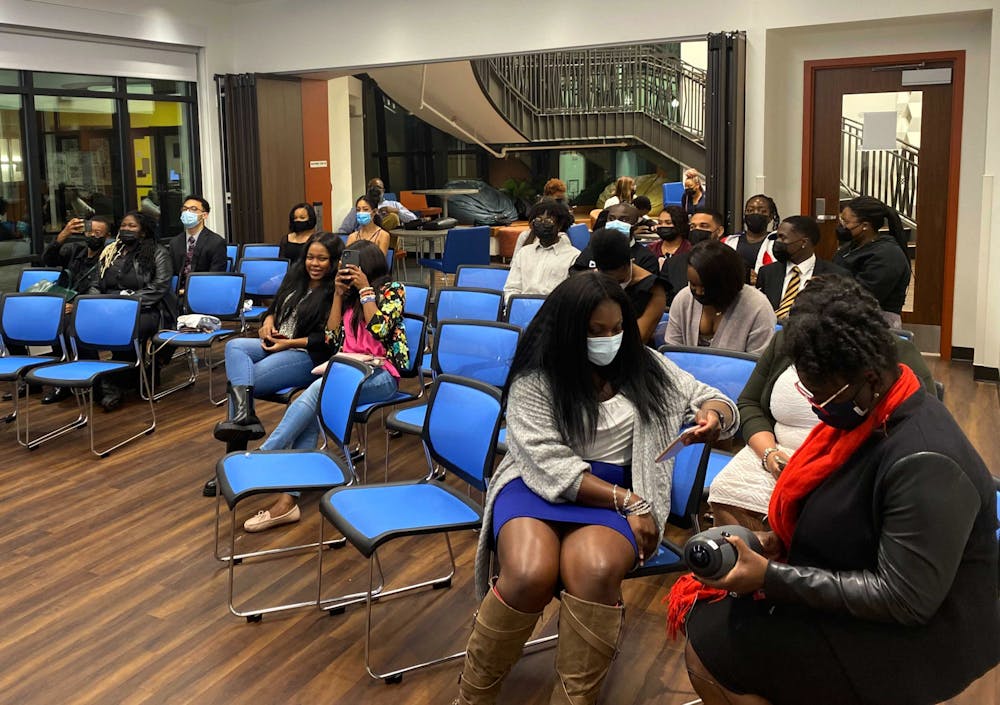The Black Student Union hosted an opening ceremony to honor the start of Black History Month Tuesday.
Nearly 50 UF community members, including students, faculty and the UF BSU, along with two guest speakers walked a small red carpet at the Institute of Black Culture across from UF campus.
Some wore dresses and tuxes while others personalized their outfits with colored slacks or patterned floral button-down shirts.
The two-hour ceremony included two guest speakers, free merch and snacks served after the event concluded.
BSU President Sherise Tracey, a 20-year-old UF international studies and global strategic communications junior, said the event had a cocktail attire dress code to encourage Black students to feel confident in different modes of Blackness.
“We want it to be something that people take seriously as well as view as an opportunity just to celebrate,” Tracey said. “Having a cocktail attire adds to that atmosphere.”
BSU chose to host the ceremony at the IBC because of its historical importance, Tracey said.
The purpose of the ceremony was to signify the importance of Black history and focus on celebrating it instead of delineating it to a single month and recounting the trauma Black Americans experience, Tracey said.
Vincent Adejumo, a UF senior lecturer of African American Studies, said he hates how Black History Month boils Black history down to just 28 days.
“There would be no America without Black people, the contributions of enslaved Africans and African Americans in this country,” he said. “There would be no Top 10 or Top 5 University of Florida without Black people.”
Rik Stevenson, a UF African American Studies professor, spoke about the history of Africans before slavery and African American studies as a discipline.
He asked the crowd a series of questions: Who founded Black History Month? Who were the Dahomey Amazons? How did the United Daughters of the Confederacy control textbooks? Who was Mitochondrial Eve?
Few knew the answers.
Then he recommended the crowd take one of his classes.
“We have to do a better job at knowing our history,” Stevenson said. “There is no way that we should be at a university with a program called African Americans Studies that is 50 years old and be as undereducated as we are.”
Contact Gregorio Ruiz-Perez at gruiz-perez@alligator.org. Follow him on Twitter @GregRuizPerez1.






